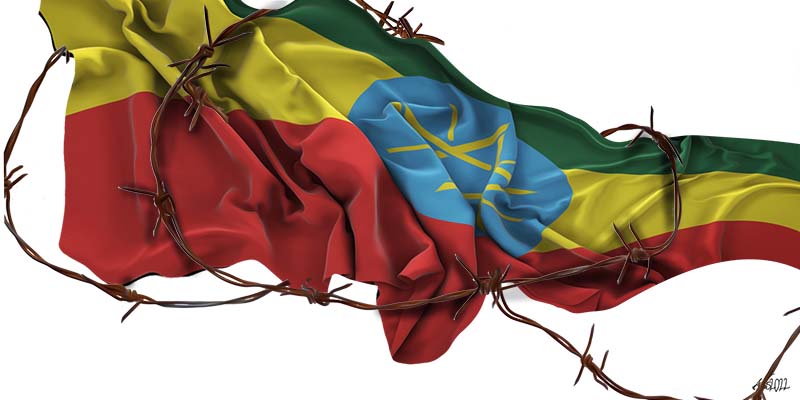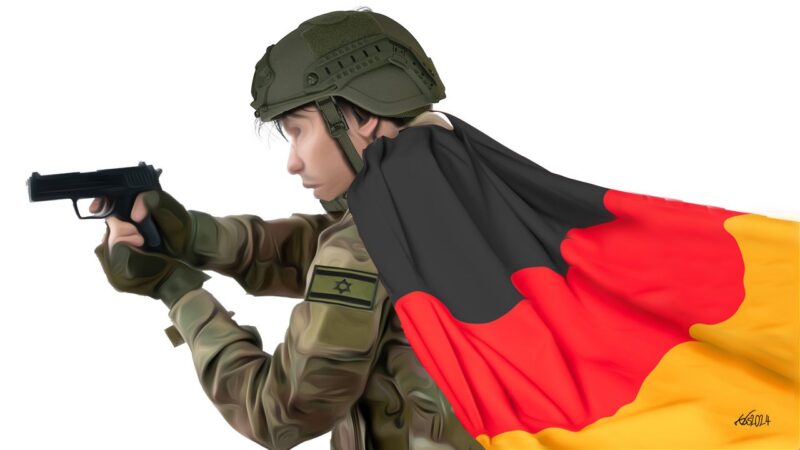The ascension to power of Prime Minister Abiy Ahmed in Ethiopia in April 2018 and the overthrow of the long-serving Sudanese President Omar Hassan al Bashir in April 2019 were hugely positive developments in the Horn of Africa, a region bedevilled by incessant conflict since the end of the Cold War. In both countries, these developments came about through organized street protests despite the disproportionate level of violence by the state, further testament that the two countries had the vital ingredients necessary on their path to genuine and meaningful reform.
In the last three years, the transition in both countries has stalled. In Ethiopia’s case, the conflict between the federal government and the Tigray Defense Force (TDF) — slightly over a year old — threatens to tear the country apart. Human rights groups have documented egregious human rights violations by the federal government, the TDF, and allied militias.
In Sudan, the military orchestrated a coup against the civilian-led transitional government. Six weeks after his reinstatement following the coup, the Prime Minister Abdalla Hamdok resigned, further jeopardizing the already fraught transition. In a televised address, Hamdok said the country was at a “dangerous turning point that threatens its whole survival”.
The derailed political transition in both countries has invited the inevitable question; what should the United States do? This question assumes punitive measures and, predictably, sanctions of some variety. However, there is limited empirical evidence that sanctions, as a diplomatic and political tool, effectively change states/actors’ behaviour.
Sudan
Sudan was under United States sanctions for 20 years, across four administrations, until the sanctions were lifted on 29 June 2018 by the U.S. Department of Treasury’s Office of Foreign Assets Control (OFAC). The country was removed from the State Sponsor of Terrorism (SSOT) list on 14 December 2020.
Sanctions were first imposed on Sudan in 12 August 1993, when the United States designated Sudan a State Sponsor of Terror, accusing the country of hosting high-level al-Qaeda leaders, including Osama bin Laden, Hezbollah, Hamas, Palestinian Islamic Jihad, the Abu Nidal Organization, Jamaat al-Islamiyya, and Egyptian Islamic Jihad, each classified as a terrorist organization.
The United States followed this designation with a comprehensive economic sanctions programme in line with Executive Order 13067 of 1997 and Executive Order 13412 (October 13, 2006).
This designation and these Executive Orders, among other things, prohibited US persons from engaging in Sudan-related transactions, blocked the property of the government of Sudan and imposed a licensing requirement for most exports of items controlled under the Commerce Control List (CCL), maintained by the U.S. Department of Commerce, Bureau of Industry and Security (BIS).
Executive Order 13067 stated, “All property and interests in property of the Government of Sudan located in the US or within the control of a US person are blocked. This blocking includes individuals or entities that are owned or controlled by, or act on behalf of, the Government of Sudan anywhere in the world.”
On 26 April 2006, President George W. Bush issued Executive Order 13400, which increased the provisions of Executive Order 13067 and “blocked the property and interests in property of certain persons connected with the conflict in Darfur”. Four months later, President Bush signed Executive Order 13412, upholding the provisions of 13067, but lifting most sanctions on trade and investment in the regions of southern Sudan, southern Kordofan/Nuba Mountains, Blue Nile State, Abyei and Darfur provided these activities did not involve the government of Sudan. Transactions related to the petroleum industry – including in southern Sudan – were prohibited.
Somalia
Somalia came into America’s crosshairs following the 9/11 attacks. Immediately after the attacks, President Bush signed Executive Order 13224 on 23 September 2001 to deal with the “unusual and extraordinary threat to the national security, foreign policy, and economy of the United States” by disrupting the “financial support network for terrorists and terrorist organizations”.
In 2008, the US government designated al-Shabaab as a Foreign Terrorist Organization under Section 219 of the Immigration and Nationality Act and as a Specially Designated Global Terrorist entity as per Executive Order 13224. On 12 April 2010, President Obama signed Executive Order 13536, declaring a national emergency to deal with the threat posed by the deterioration of the security situation and the persistence of violence in Somalia, and acts of piracy and armed robbery at sea off the coast of Somalia.
On 20 July 2012, the President issued Executive Order 13620 to take additional steps to deal with the national emergency declared in Executive Order 13536. The order addressed exports of charcoal from Somalia, which generate significant revenues for al-Shabaab; the misappropriation of Somali public assets; and specific acts of violence committed against civilians in Somalia.
The Executive Order was in line with the UN Security Council Resolution 2036 of 22 February 2012 and Resolution 2002 of 29 July 2011. President Joe Biden extended the measures announced in Executive Order 13536 for a further year on 1 April 2021.
Effects of sanctions
Sanctions, by their very nature, are blunt instruments. And while, in theory, their target is the state, their agencies, and individuals connected with them, or non-state groups, these entities seldom feel the pinch; on the contrary, it is the citizens who bear the full brunt.
In the case of Sudan, aside from the country’s leadership, the chief targets of the sanctions were government-funded agencies like Sudan’s Railway Corporation, the National Electricity Corporation, the Posts and Telegraphs Public Corporation, and the Sudan Cotton Company. These outfits were placed on the US Treasury’s Specially Designated Nationals and Blocked Persons list (SDN).
The order addressed exports of charcoal from Somalia, which generate significant revenues for al-Shabaab.
While institutions like the Railway Corporation could turn to Chinese and South African trains and spare parts, heavily mechanized health institutions requiring high-level, specialized training and knowhow suffered. For instance, the Radiation and Isotopes Centre Khartoum (RICK) – Sudan’s largest public cancer treatment centre – and the National Cancer Institute of the University of Gezira (NCI–UG) suffered under the crippling weight of 20 years of sanctions. Many of the cancer patients in Sudan had to rely on decrepit government facilities where the machines were not functioning well or had no drugs.
While there are exemptions regarding importing essential health equipment, obtaining such a license from the Office of Foreign Assets Control (OFAC) is a nightmare owing to its Byzantine rules. Running afoul of the regulations attracts severe punishment. In 2014, the giant French Bank PNB Paribas entered into a record US$8.9 billion settlement with the Department of Justice for sanctions violations.
Such steep fines acted as a deterrent and the cost of compliance was in the end borne by the citizens. Banks, corporations, and other multinational/multilateral organizations avoided Sudan altogether rather than inadvertently risk attracting the wrath of the U.S. Treasury Department’s Office of Foreign Asset Control (OFAC) – the primary sanctions enforcer.
The case of the Omdurman Water Supply and Optimization Project is also illustrative. The Euro 24 million project was funded by the Dutch government and the international development banks of the Netherlands, Malaysia, and South Africa to provide water to more than 1.5 million people in North Omdurman. As part of the arrangements for the project, Al Manara Water Company was established to design, build, and run the 200,000-cubic meter-per-day water treatment plant for a period of ten years until the loan is repaid.
Five years after the plant began operations the management noticed that routes to transfer funds, whether to repay the development banks or procure spare parts, had been considerably tightened because of concerns about compliance with U.S. sanctions. Approximately six months after the PNB Paribas settlement, a UAE-based bank sent a closure request to Al Manara Water Company Ltd.
Following seasons of failed rains in Somalia and months of warnings, the UN declared famine in two regions of South Central Somalia on 20 July 2011. The famine led to the deaths of 258,000 people. Since the famine was primarily concentrated in the areas under al-Shabaab’s control, the US’s designation of al-Shabaab as a terrorist organization in 2008 had a chilling effect on many humanitarian groups afraid of being viewed as providing material support to the group.
Sanctions, by their very nature, are blunt instruments.
Fears of inadvertent diversion of resources to the militant group prompted the US to scale back its aid by nearly 88 per cent, from US$237 million in 2008 to only US$20 in 2011. As a result, many international aid organizations scaled back, and in some cases, ceased their humanitarian operations altogether.
Following an outcry from the aid groups, the Department of State and the U.S. Agency for International Development (USAID) produced an expanded version of the standard OFAC license, which guaranteed that no NGO that contracts with USAID and operates in “good faith” would face prosecution if some of their materials ended up in the hands of al-Shabaab.
Past sanctions in the Horn of Africa consistently have failed to yield to expected results. Yet despite their limited effects, the ongoing conflict in Ethiopia has attracted sanctions. On 12 November 2021, OFAC designated four entities and two individuals under Executive Order 14046 for undermining the “stability and integrity” of the Ethiopian state. It is doubtful that this will change the trajectory of the conflict. On the contrary, Eritrea, a key actor in the Ethiopian war, had been under a raft of UN sanctions since 2009 that were only lifted in 2018.
With Sudan’s political transition off the rails and Ethiopia’s conflict looking protracted, there is a growing clamour for sanctions. However, those advocating for sanctions may need to reconsider their cost to the citizens.








